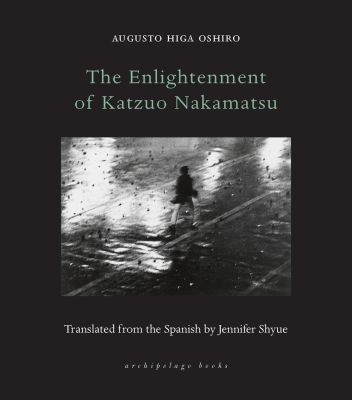Katzuo Nakamatsu is having a recurring dream. He's strolling down the glinting avenues of Lima, branches crowning overhead, when he hears someone snickering from the shadows. He wanders away in concentric circles, as if along a spider web, and wakes in a sweaty torment. Nakamatsu sleepwalks his way toward sublime disintegration. Katzuo is at sea after being forced out of his job as a literature professor without warning. He retreats into flanerie, musing with imaginary interlocuters, roaming the streets, and reciting the poems of Martin Adan. Slowly, to the 'steady beat of his reptilian feet,' Nakamatsu begins to arrange his muted ceremony of farewell. He conjures his smiling wife Keiko and wonders how he lost his Japanese community with her death. With a certain electric lunacy, he spruces himself up with a pinstripe tie, tortoiseshell glasses, and wooden cane, taking on the costume of a man he knew as a child, hoping to grasp that man's tenacious Japanese identity. Like a logic puzzle,�Enlightenment�calibrates Augusto Higa Oshiro's own entangled identity. From this dark and deadly estrangement, a piercing question emerges: 'Why did our hides, our Japanese eyes, our bodily humours, provoke suspicion and rejection?'

